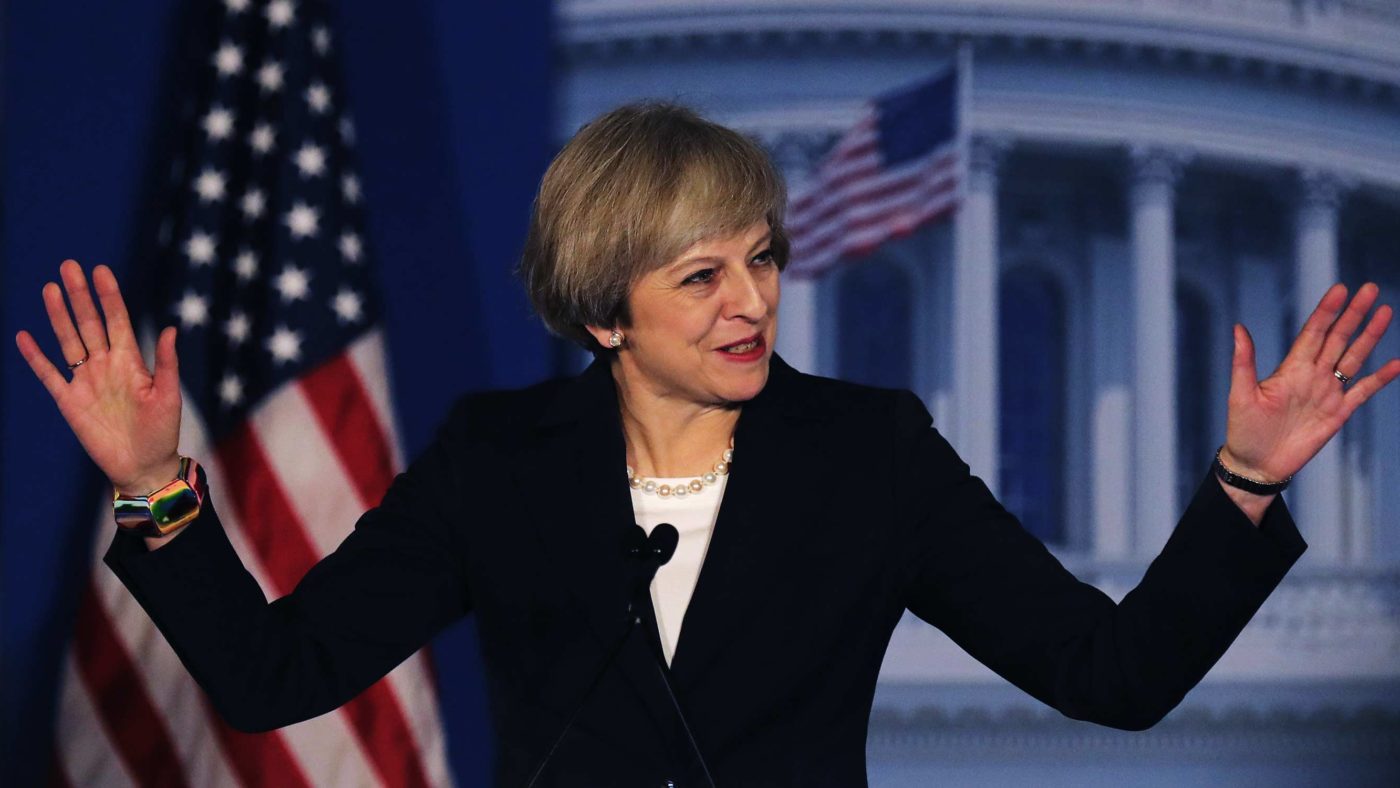This morning, Britain finds itself cast in the familiar role of world policeman – or at least, of loyal deputy to the United States. British jets and missiles played only a small role in last night’s co-ordinated strike, with America and France, against Bashar al-Assad’s regime, but it was an important one nonetheless: a signal that the monstrous use of chemical weapons against his own citizens should not and could not go unpunished.
The Prime Minister’s willingness to be part of this coalition is an indicator that leaving the EU does not have to mean shrinking from the world stage.
In her address to the Republican party conference in Philadelphia last year, Theresa May outlined the future Britain had chosen for itself: “A future that sees us restore our parliamentary sovereignty and national self-determination, and to become even more global and internationalist in action and in spirit… A future that sees us step up with confidence to a new internationalist role, where we meet our responsibilities to our friends and allies, champion the international co-operation and partnerships that project our values around the world, and continue to act as one of the strongest and most forceful advocates for business, free markets and free trade anywhere around the globe.”
The UK still meets its NATO treaty obligation to spend 2 per cent of GDP on defence. It has also stuck to the international aid target of 0.7 per cent of GDP. This week, International Development Secretary Penny Mordaunt recommitted Britain to that pledge via a new “great partnership” that will “connect all that our nation has to offer, its talents, its people and communities, its expertise and knowledge, and its resources to those in the developing world”.
Yet in many respects, the new “Global Britain” is still a work in progress.
It is not just that public opinion, haunted by the memory of Iraq, is distinctly sceptical about further action in Syria, and about what might come next – see for example Ian Birrell’s piece this week deploring “gesture bombing”. That, along with the intractability of the Syrian crisis, helps explain the limited nature of both the strikes and the Prime Minister’s rhetoric.
In other important ways, Britain is failing to live up to its international aspirations. However you define “Global Britain”, trade must be at its heart. You will struggle to find a politician who, broadly speaking, doesn’t think the UK should avoid barriers to trade with Europe while striking as many trade deals as possible with the rest of the world.
But when it comes to the content of those deals, we are hopelessly inflexible. Trade negotiations with America, for example, will not get far unless we drop our unscientific objections to chlorinated chicken.
A country that makes as much a fuss as Britain has over where its passports are made, or meddles in takeovers as the government has with Melrose’s bid for GKN, must ask itself just how open for business it really is.
Then there is immigration, on which the government’s actions are a long way from the cosmopolitan, forward-looking and outward-facing ethos of Global Britain. As Alex Massie explained on CapX this week, the Home Office treats not just new arrivals, but even those who have been in Britain for 50 years and hold a British passport, with a mix of ineptitude and cruelty.
The government knows that the conversation about what our immigration system looks like after freedom of movement comes to an end will be difficult, which is why it has been so keen to delay it. But the debate cannot be avoided for much longer.
One of the biggest advantages the Leave side of the EU referendum had was that Brexit was a blank canvas. Remain had to defend the status quo, with all its faults. Brexit was whatever you wanted it to be.
But applying brushstrokes to that blank canvas will mean doing things that displease sections of the 52 per cent – especially the Faragist corner of the Brexit universe. To say nothing of those Remainers for whom “Global Britain” is nothing more than imperial nostalgia, or those Left-wing protectionists for whom trade deals are just another tool in the hyper-capitalists’ arsenal.
Across the piece, Britain is still torn – in Westminster and beyond – between opening itself to the world and shutting itself off. If “Global Britain” is to become a reality, the case for it needs to be made with fresh conviction.


